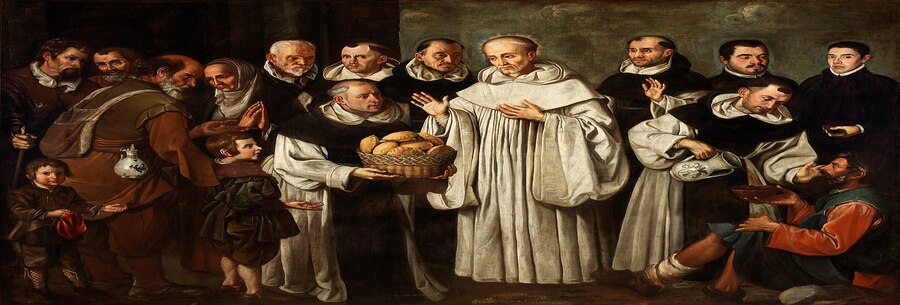St Bernard of Clairvaux, also known as Bernard of Fontaine, was a 12th-century Cistercian monk, theologian and religious reformer. His life and work had a profound influence on Christian spirituality, medieval theology and Church history.
Youth and Training
Saint Bernard was born on 21 August 1090 in Fontaine-lès-Dijon, Burgundy, France. He was the third of seven children from a noble family. From an early age, Bernard was remarkable for his intelligence and piety. At the age of 22, after the death of his mother, he decided to become a monk at the monastery of Cîteaux, near Dijon, which was then becoming the centre of a monastic reform. Bernard persuaded his five brothers and many friends to join him in this endeavour.
Foundation of the Abbey of Clairvaux
The Cistercian monastic reform, based on the Rule of St Benedict, focused on simplicity, poverty and manual labour. Bernard, along with a group of monks, founded the abbey of Clairvaux (or Cîteaux) in 1115, and he soon became prior of this new community. Under his leadership, Clairvaux became one of the most important monasteries in medieval Europe and the centre of the Cistercian reform.
Spirituality and Writings
St Bernard was a man of profound spirituality and erudition. He wrote numerous theological and spiritual works that greatly influenced the religious thought of his time. His most famous work is "On Consideration", in which he deals with the spiritual life, prayer and contemplation. His writings inspired generations of Christians and influenced figures such as Thomas Aquinas.
Fight against heresy
In addition to his theological contribution, Saint Bernard was a passionate defender of the Catholic faith. He was involved in the fight against heresy, particularly the Albigensian movement. Such was his zeal and eloquence that he was commissioned to preach the Second Crusade in 1146, with the aim of defending the Eastern Latin states in the Holy Land.
Relations with the Church and Royalty
St Bernard had a great influence on the papacy of his day. He was an advisor to several popes, including Eugene III, who was his former pupil. He played a key role in the abdication of the antipope Anacletus II in favour of Pope Innocent II.
His talents as an adviser also extended to politics, and he had a significant influence on European royalty. He was a close friend of Louis VII of France and exerted considerable influence on royal affairs. He opposed consanguineous marriages and advised kings to conduct themselves justly.
Death and Canonisation
Saint Bernard of Clairvaux died on 20 August 1153 at Clairvaux Abbey, one day before his 63rd birthday. He was canonised by Pope Alexander III in 1174. His feast day is celebrated on 20 August.
Legacy
The legacy of Saint Bernard is immense. He was a leading religious, intellectual and political figure of his time. His writings and spiritual teachings continue to be studied and revered. He is often called "The Doctor Mellifluus" because of his gentle and profound teaching of the Christian faith. His influence endures in the Catholic Church and beyond, and he is recognised as one of the greatest saints and theologians in Christian history.




















